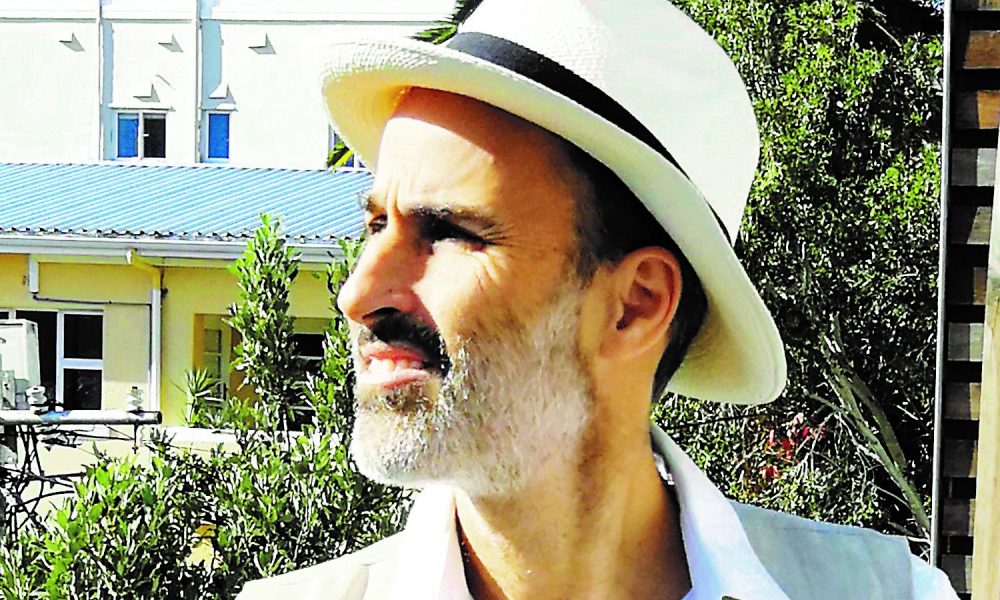News
Don’t stand idly by the blood of Collins Khosa
As I write this, America is burning as the police move to crush the protest against their brutal action. George Floyd is now a hashtag that’s stirring a country. And what about South Africa? We are reeling from the reports of the treatment of Collins Khosa, Petrus Miggels, Sibusiso Amos, Elma Robyn Montsumi, Adane Emmanuel, and other South Africans at the hands of our own police.

RABBI GREG ALEXANDER
At the exact time that we are vulnerable and fearful, the ones who should be keeping us safe are killing our brothers. And let’s be clear, those brothers aren’t living in nice protected neighbourhoods with police and ADT to call when afraid. The cases from the United States and our own country are all invariably black, poor, and voiceless.
We realised fairly soon after lockdown that the experience wasn’t the same for whites and middle class South Africans as it was for the rest (and majority) of the country. This has led on the positive side to the creation of non-governmental organisations like Ladles of Love and the CANs (Collective/Community Action Networks), and huge efforts by local neighbourhoods to care for one another during the COVID-19 pandemic. But even there, the sense is often of the privileged handing out to the desperate.
As soon as the South African National Defence Force (SANDF) and police were called in to enforce the lockdown, we saw a darker distinction between neighbourhoods. In Sandton and Constantia, the police fined (or warned, or ignored) people for jogging after 09:00, and in Alexandra and Gugulethu, they beat people for any manner of lockdown violation.
Then in April, Collins Khosa was strangled, slammed against a cement wall and a steel gate, and hit with the butt of a soldier’s machine gun. And nobody spoke out, because he doesn’t live in Sandton or Constantia. This is the country where we still wait for one single policeman to be indicted for the Marikana massacre nearly eight years ago when we watched police kill miners on national television.
And then last month, George Floyd was filmed having his neck crushed by an American police officer while he gasped for breath. And that country erupted. South Africa woke up too. Because we know that the death of Collins Khosa at the hands of those meant to serve and protect him isn’t the result of the “over-enthusiasm” of the South African Police Service or the SANDF during lockdown, as our president has suggested. Rather we know it’s because of the deep, unequal fault lines that run through our country’s history until today. And we, Jewish South Africans, lie on the comfortable side of that fault line.
The Torah calls out to us, “Do not stand idly by [when] the blood of your fellow [human being is spilled].” (Leviticus 19:16). We can’t stand by right now as the blood of our fellows is spilled. This isn’t an acceptable price to pay for locking down or emerging out of lockdown, especially if the latter is purely for the same system of inequality to re-emerge with it.
A midrash looks at the connections between the two tablets of the decalogue: “How were the ten commandments arranged? Five on one tablet, and five on the other. On one tablet it was written, ‘I am the Eternal your G-d’, and opposite it on the other tablet, was written, ‘You shall not murder.’ This means that one who sheds blood is considered as having diminished the divine image.” (Mechilta d’Rabbi Yishmael, Tractate Bachodesh)
This week, the divine image has been diminished. We can’t be silent. Many Jewish communities in the US have begun to have conversations about the roots of racism in their schools, shuls, and organisations, and it’s time for our South African community to do that too. We have to turn a mirror on ourselves, and ask what we’re doing to uproot racism, privilege, and poverty in this country. This is in no way meant to diminish the Jewish individuals and organisations making a huge impact, but we are a tiny minority group embarrassingly loaded with privilege and resources and this seems like a watershed moment in history. Let’s seize it.
This isn’t something that happens to others, this is happening in our country, right now.
Our Torah is clear. It teaches that every human being, created in the divine image, has infinite worth and is fundamentally equal to every other (Genesis 1:26, Mishna Sanhedrin 4:5). It teaches that, indeed, we are our brothers’ keepers (Genesis 4:9). It teaches that the Holy One hears the cry of the oppressed (Exodus 22:22). And it commands us not to stand by while our neighbour’s blood is shed.
- Rabbi Greg Alexander is a leader of the Cape Town Progressive Jewish Congregation.
Buchinsky
June 11, 2020 at 1:44 pm
‘Excellent. meaningful and thought provoking
Rated Highly’